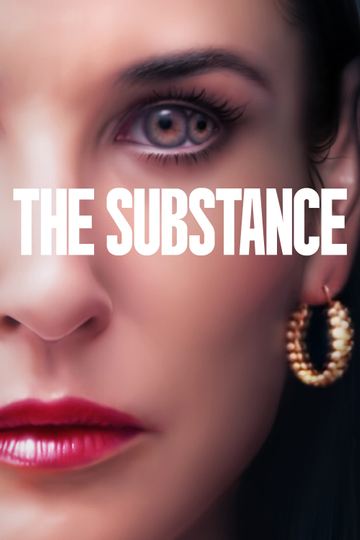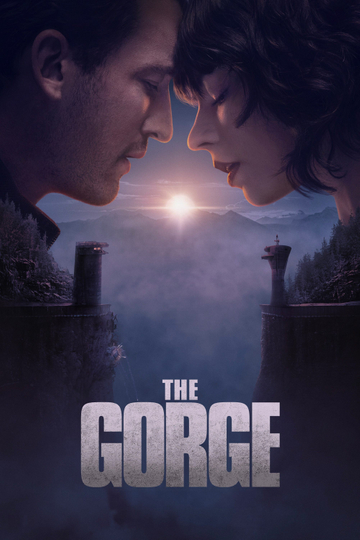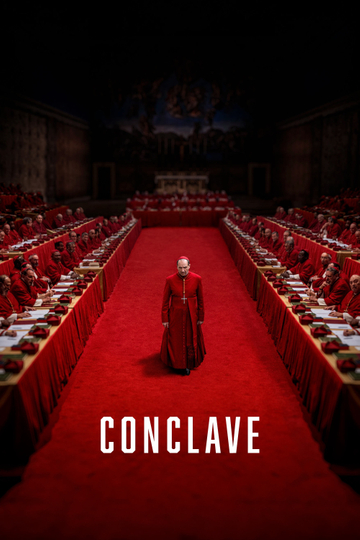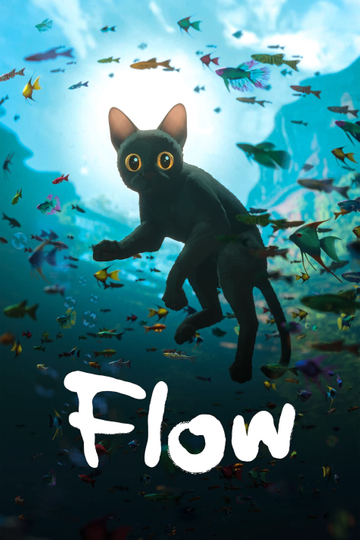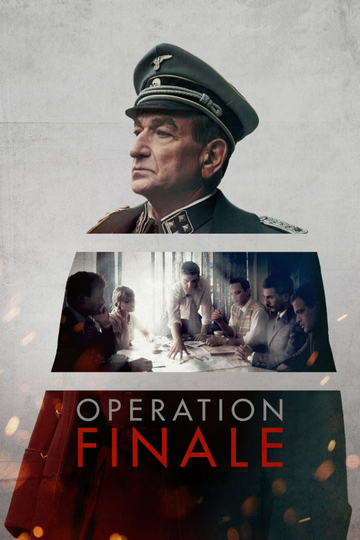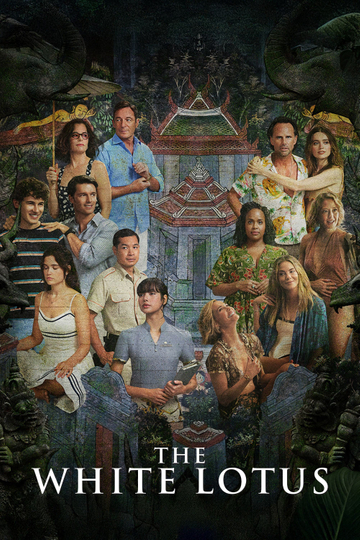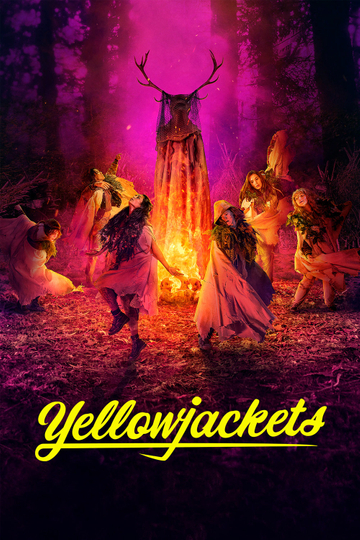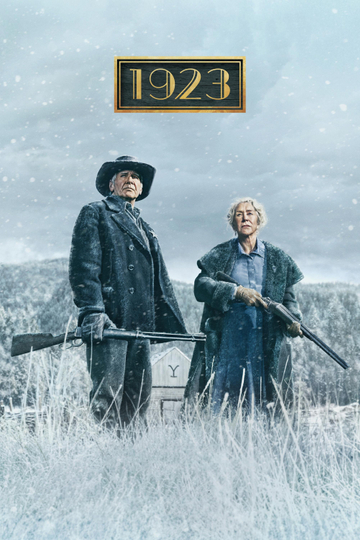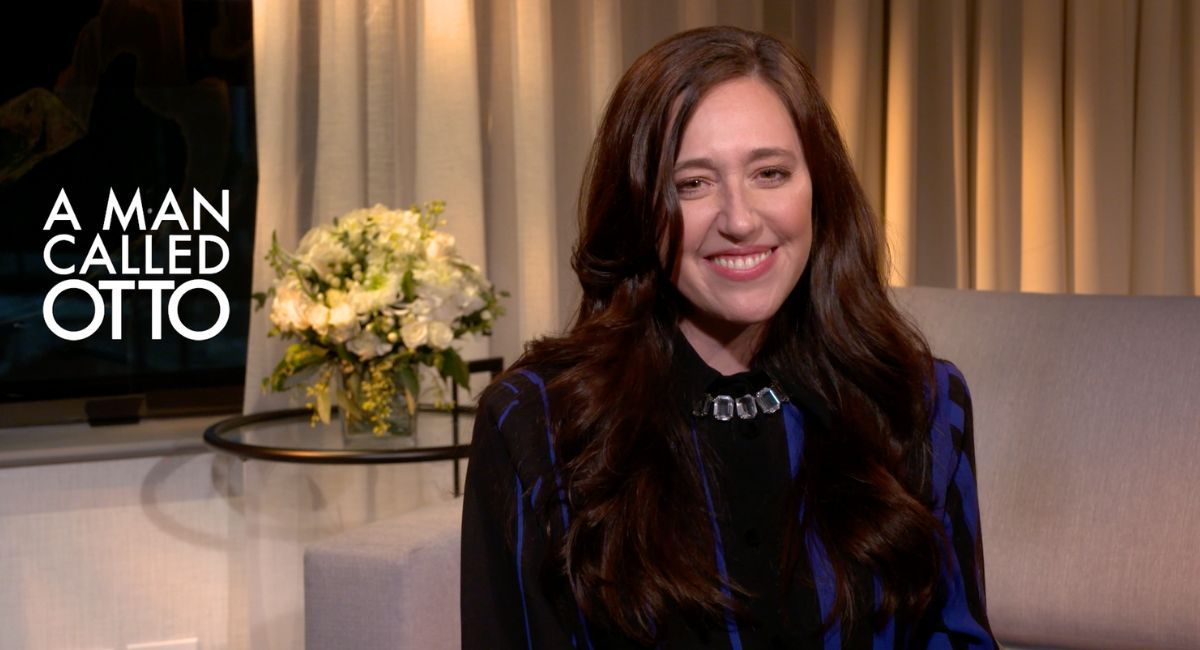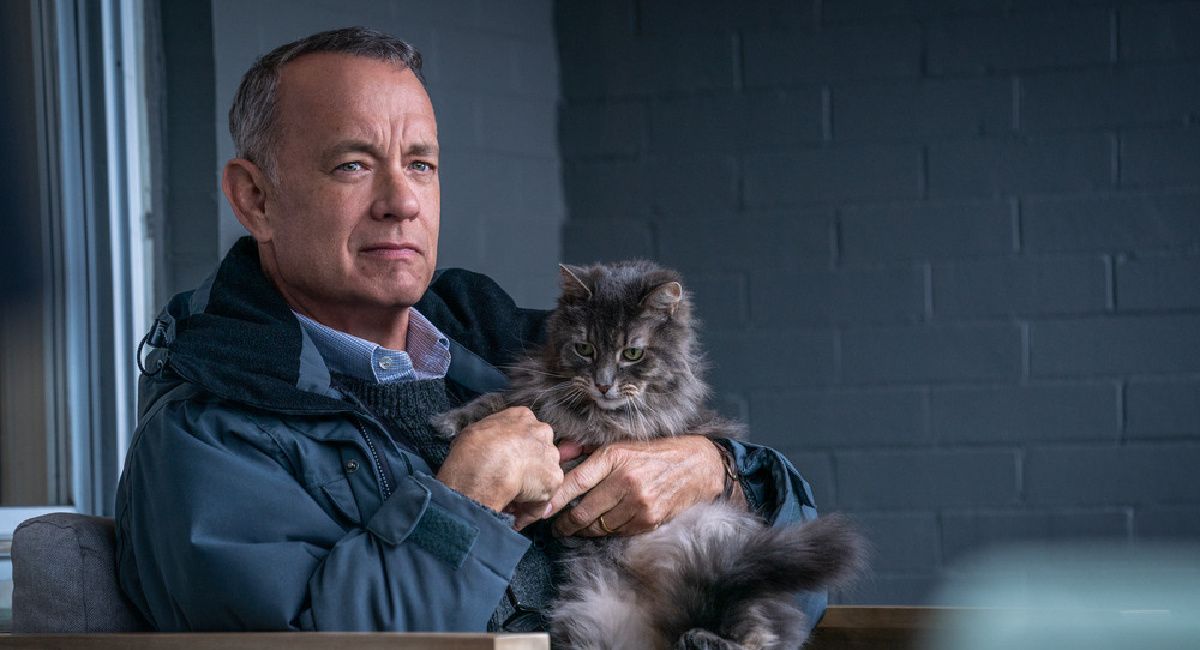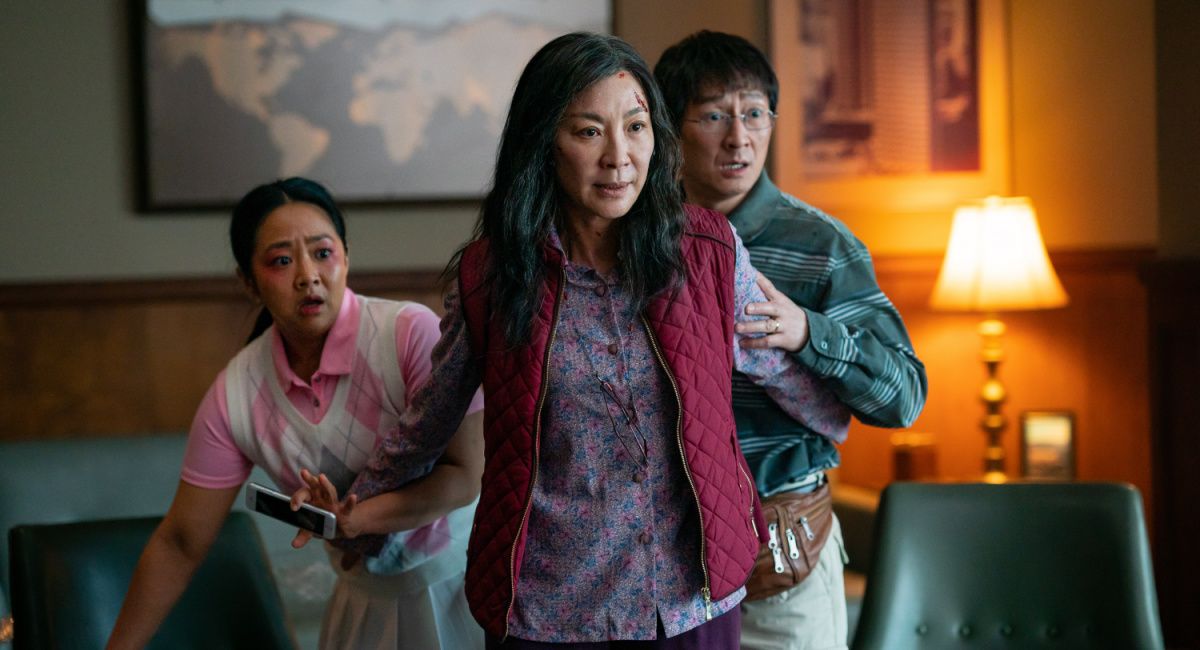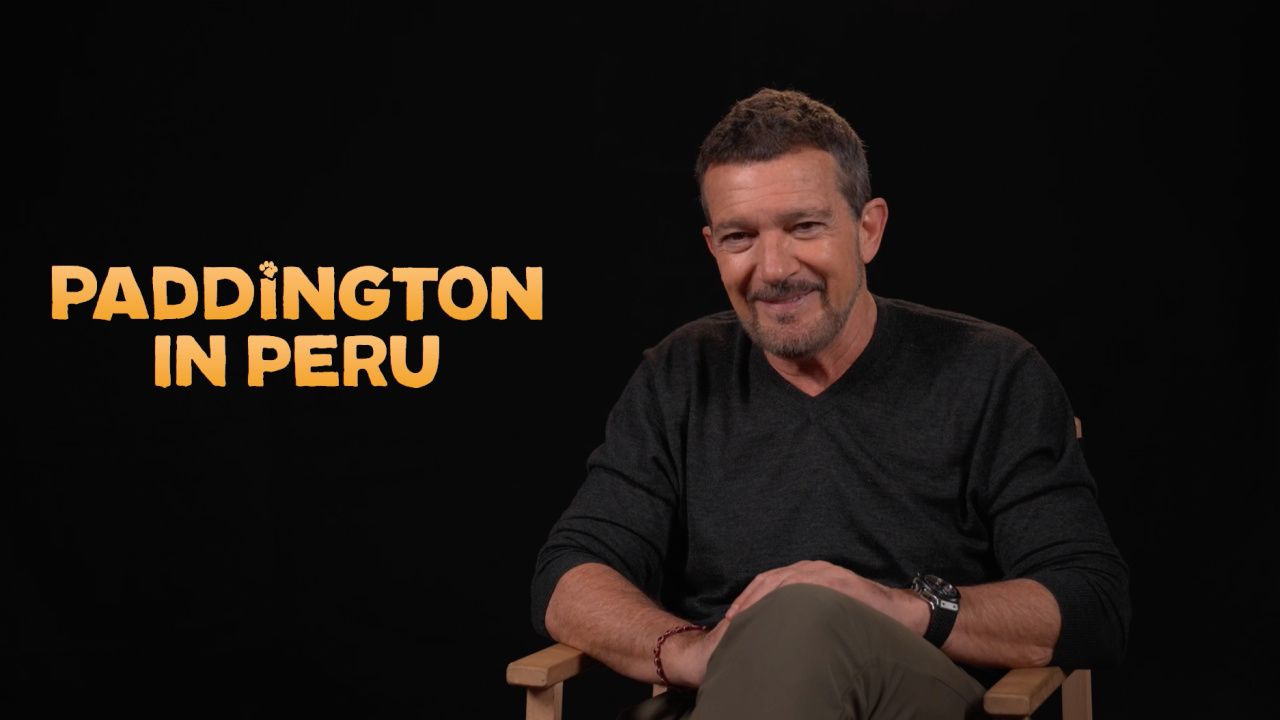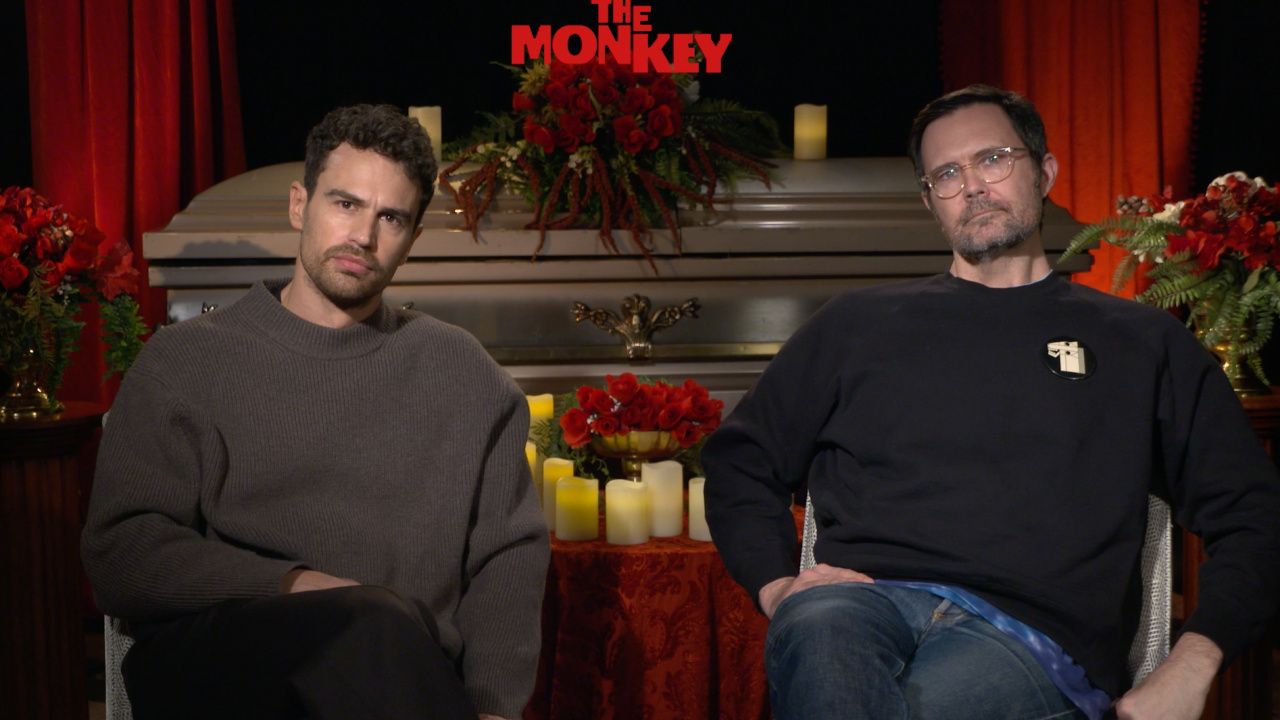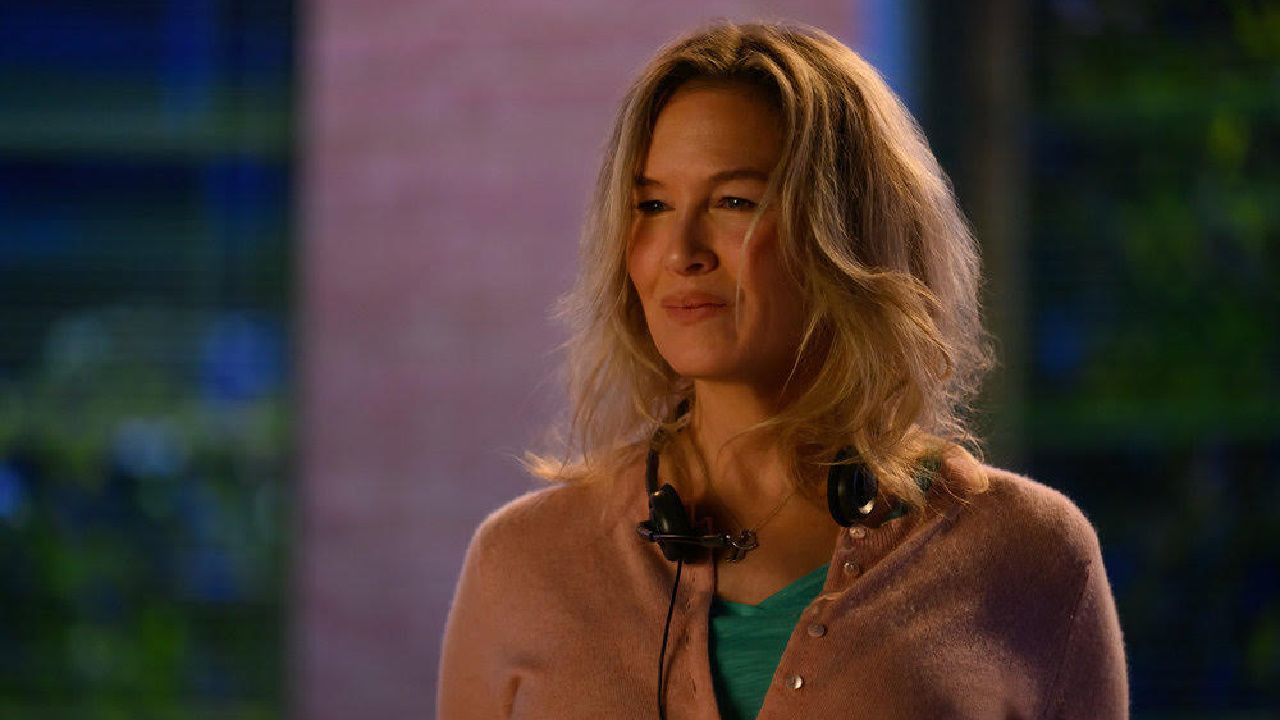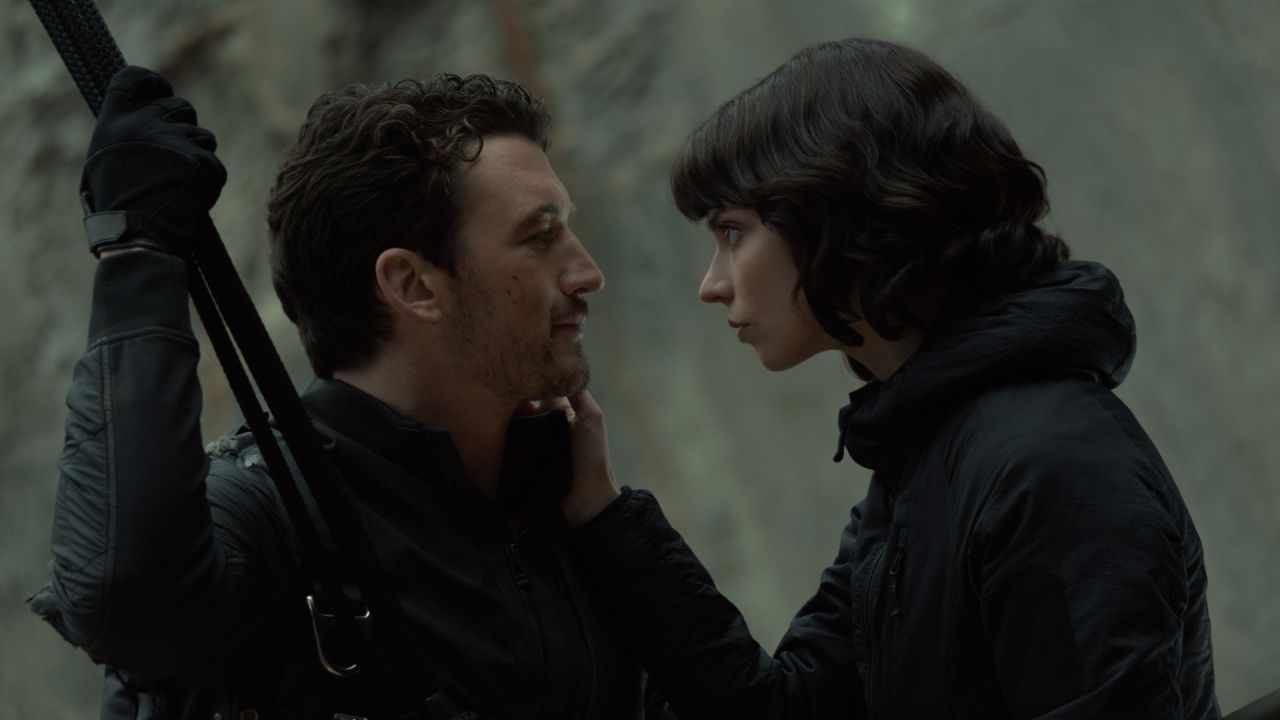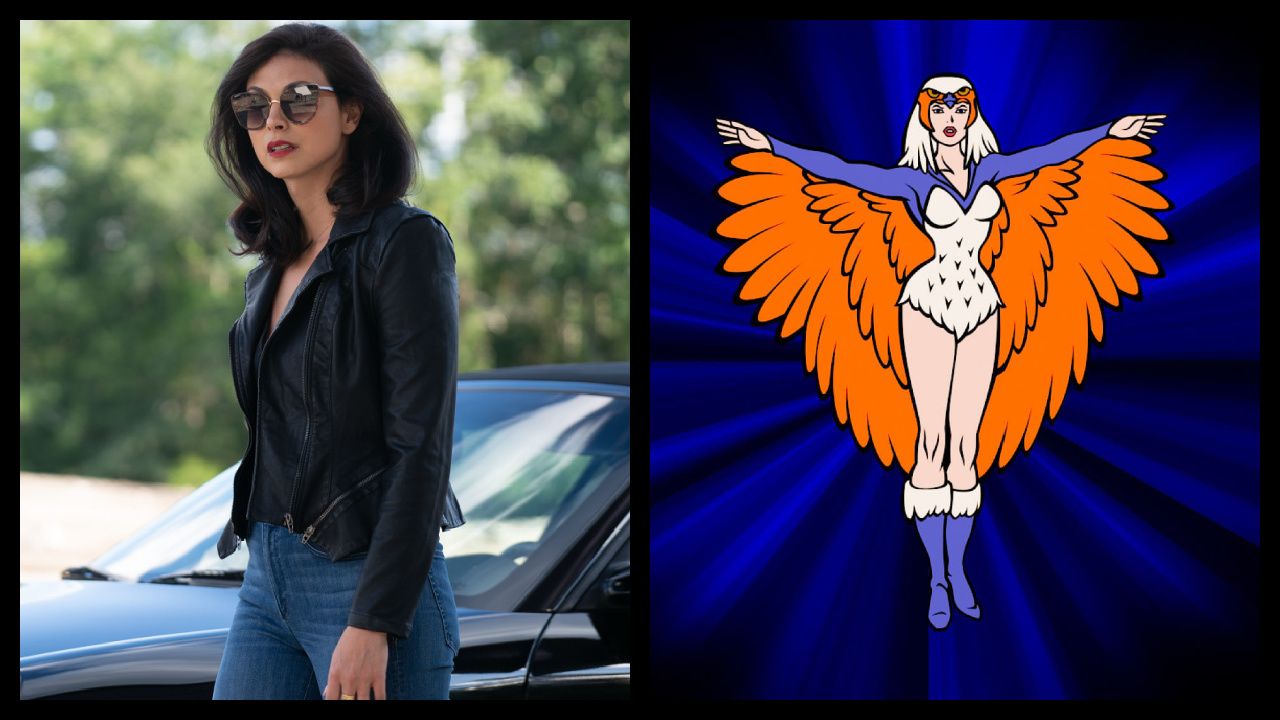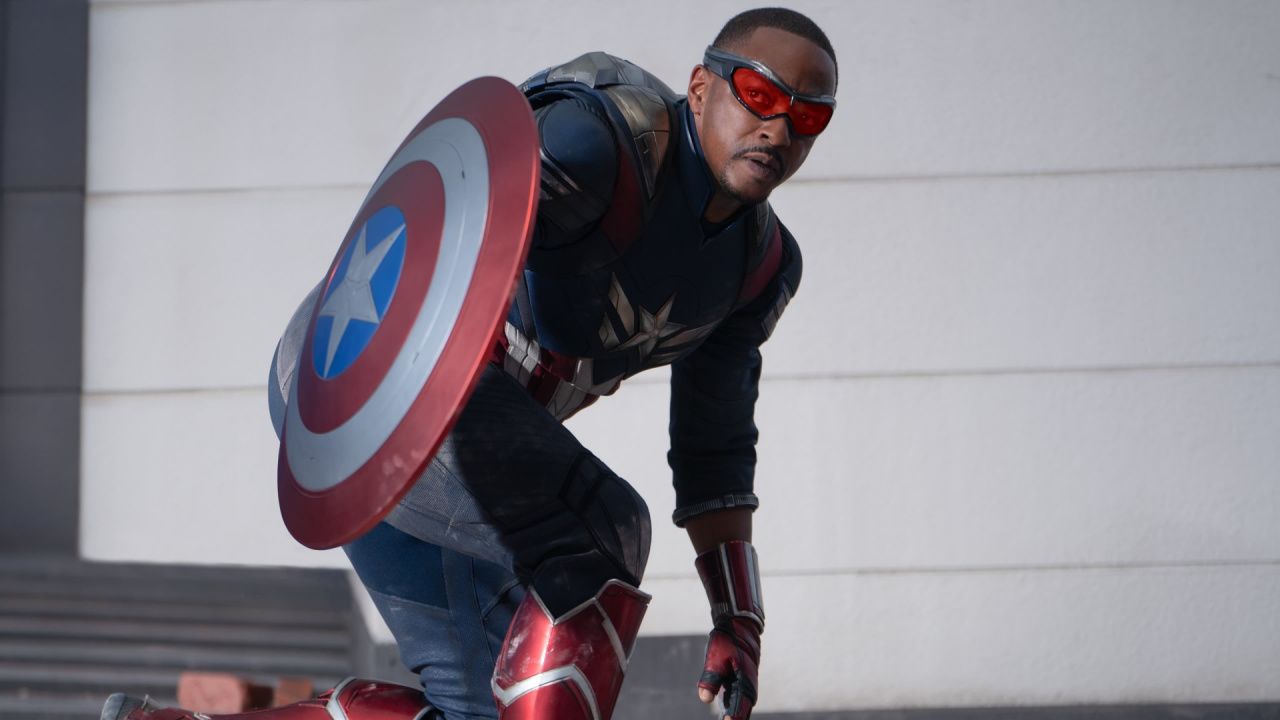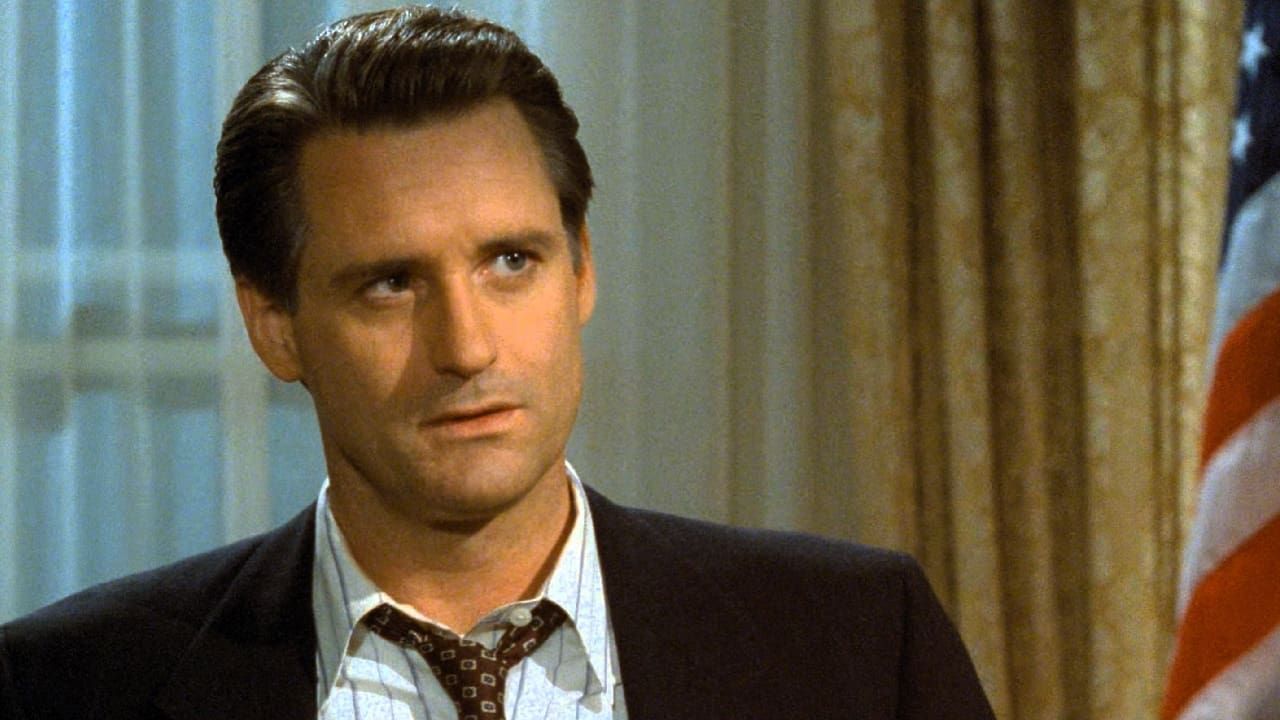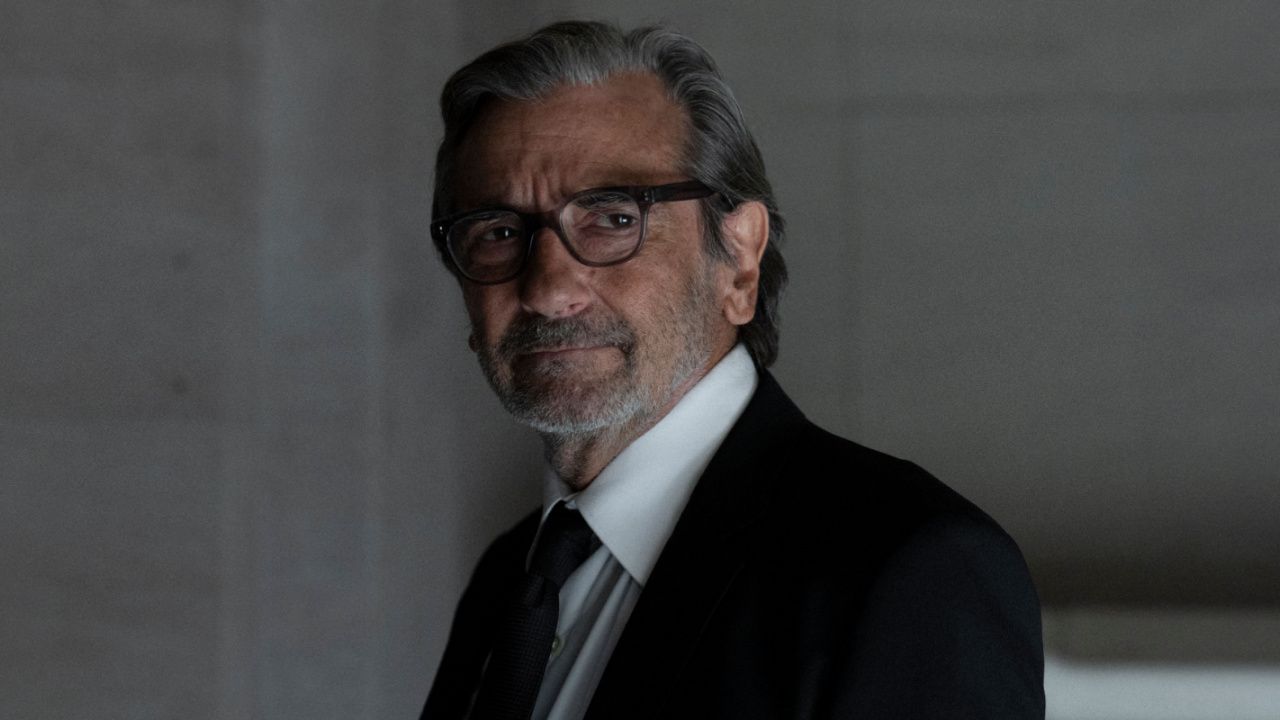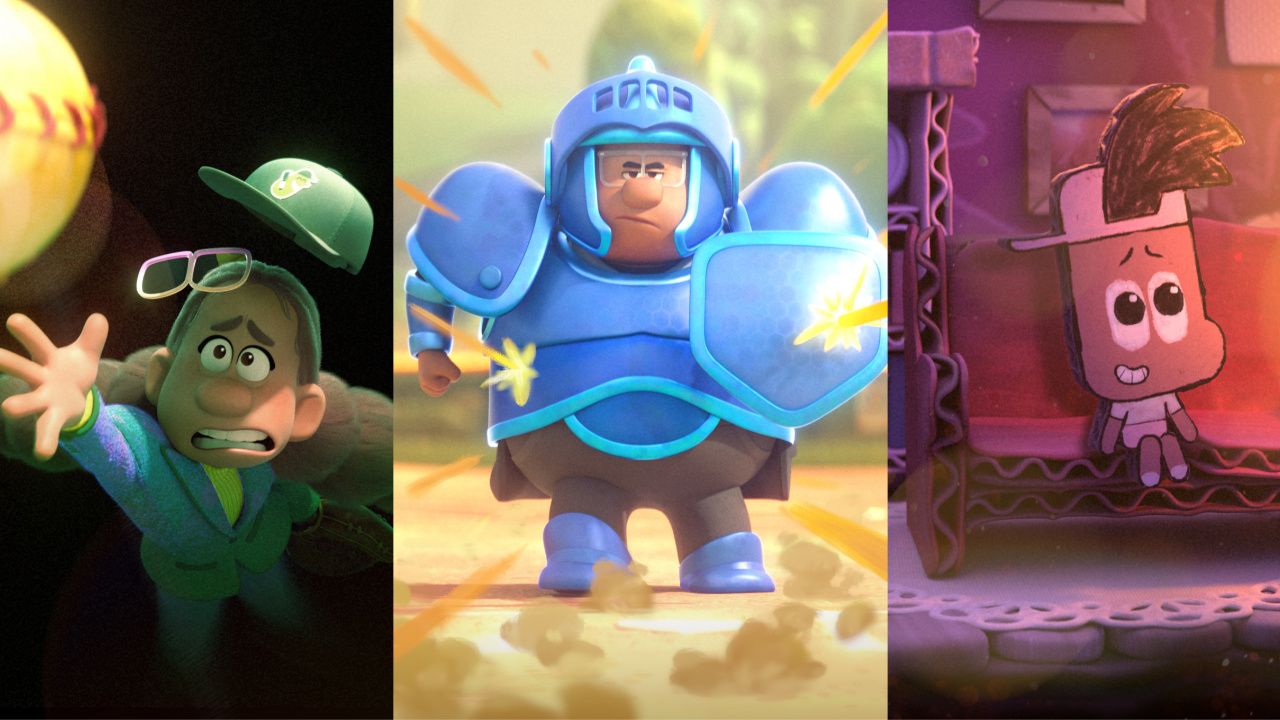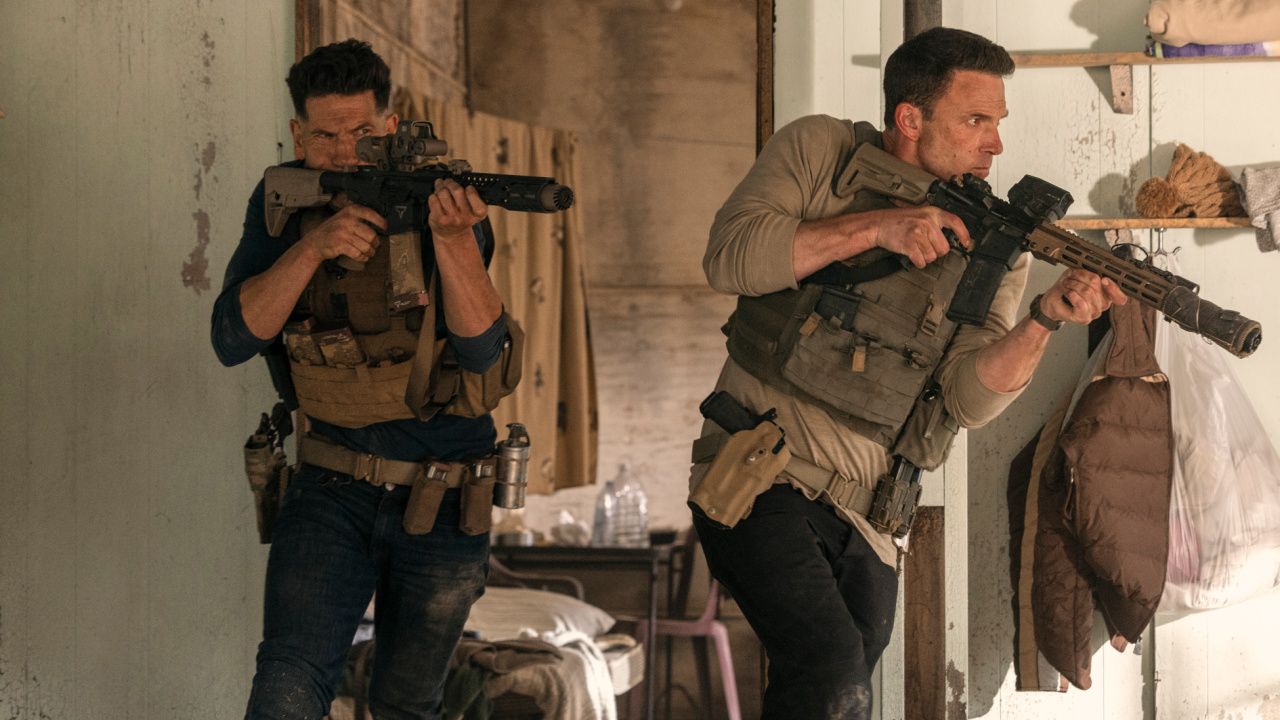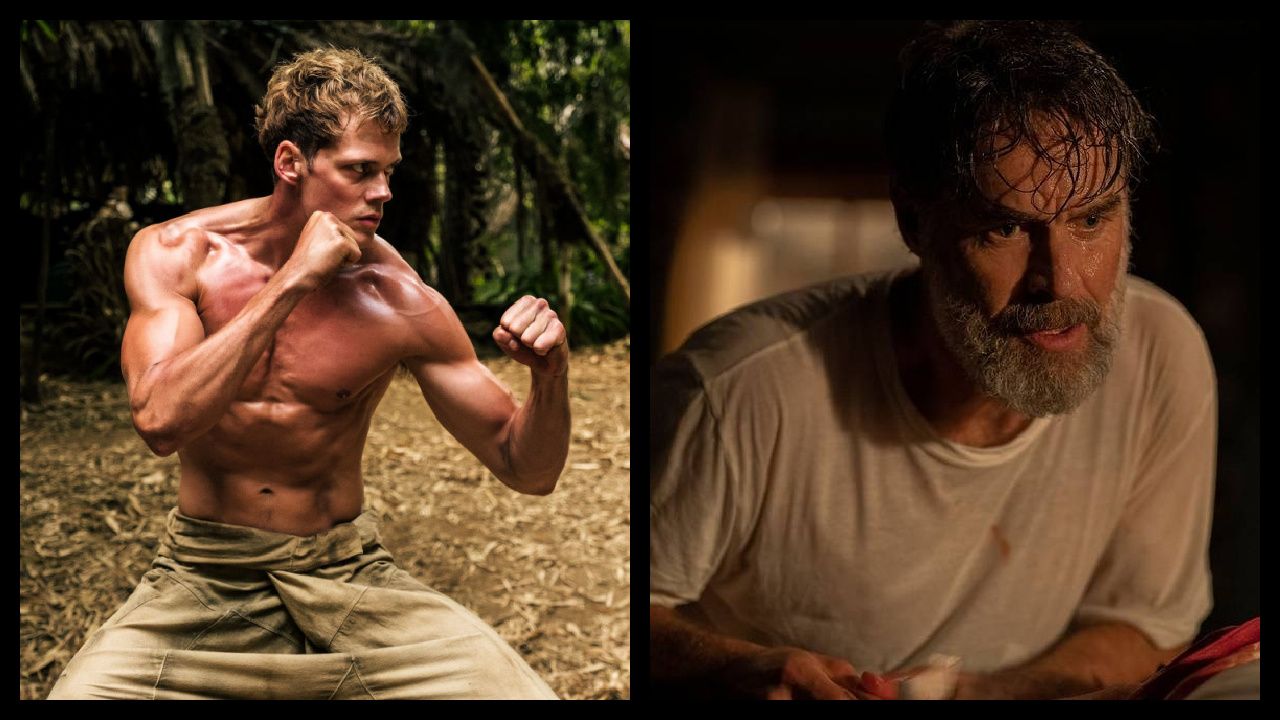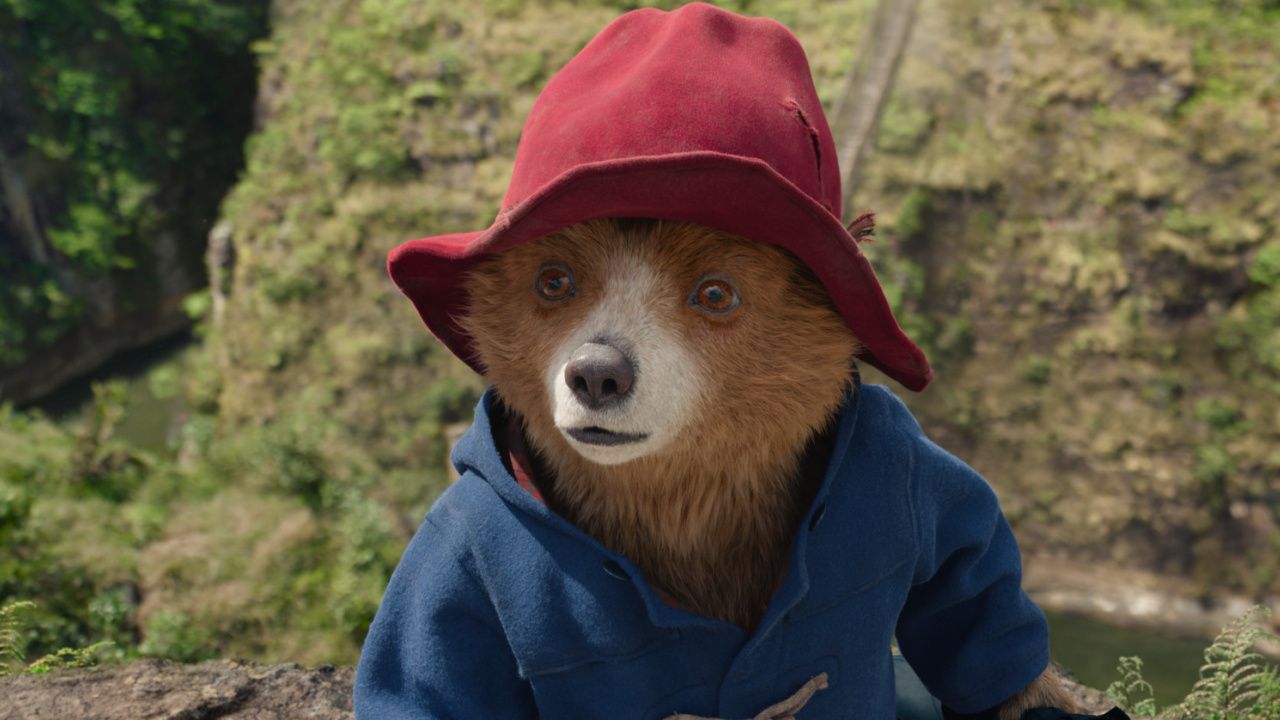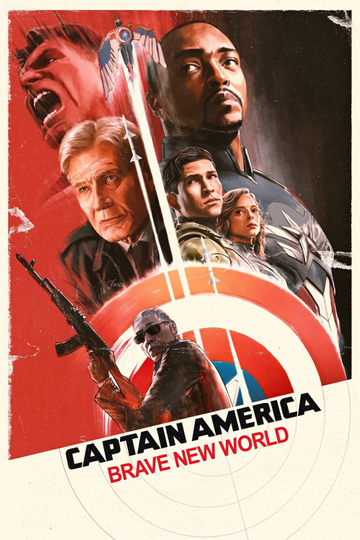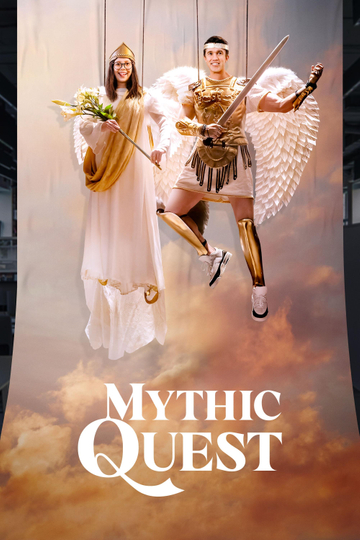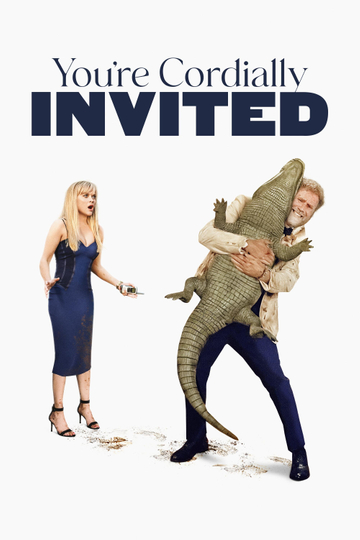Director Marc Forster and Producer Renee Wolfe Talk 'White Bird'
Moviefone speaks with director Marc Forster and producer Renee Wolfe about 'White Bird'. "I read the screenplay, and I started tearing up," Forster admitted.
Opening in theaters on October 4th is ‘White Bird’, which is based on the graphic novel of the same name by author R. J. Palacio and acts as both a prequel and sequel to 2017’s ‘Wonder’.
Directed by Marc Forster (‘A Man Called Otto’, ‘World War Z’), the film stars Ariella Glaser (‘Radioactive’), Orlando Schwerdt (‘True History of the Kelly Gang’), Gillian Anderson (‘The X-Files’), Helen Mirren (‘Shazam! Fury of the Gods’), and reprising his role from ‘Wonder’, Bryce Gheisar as Julian Albans.
Related Article: Mariana Treviño Talks 'A Man Called Otto' and Working with Tom Hanks
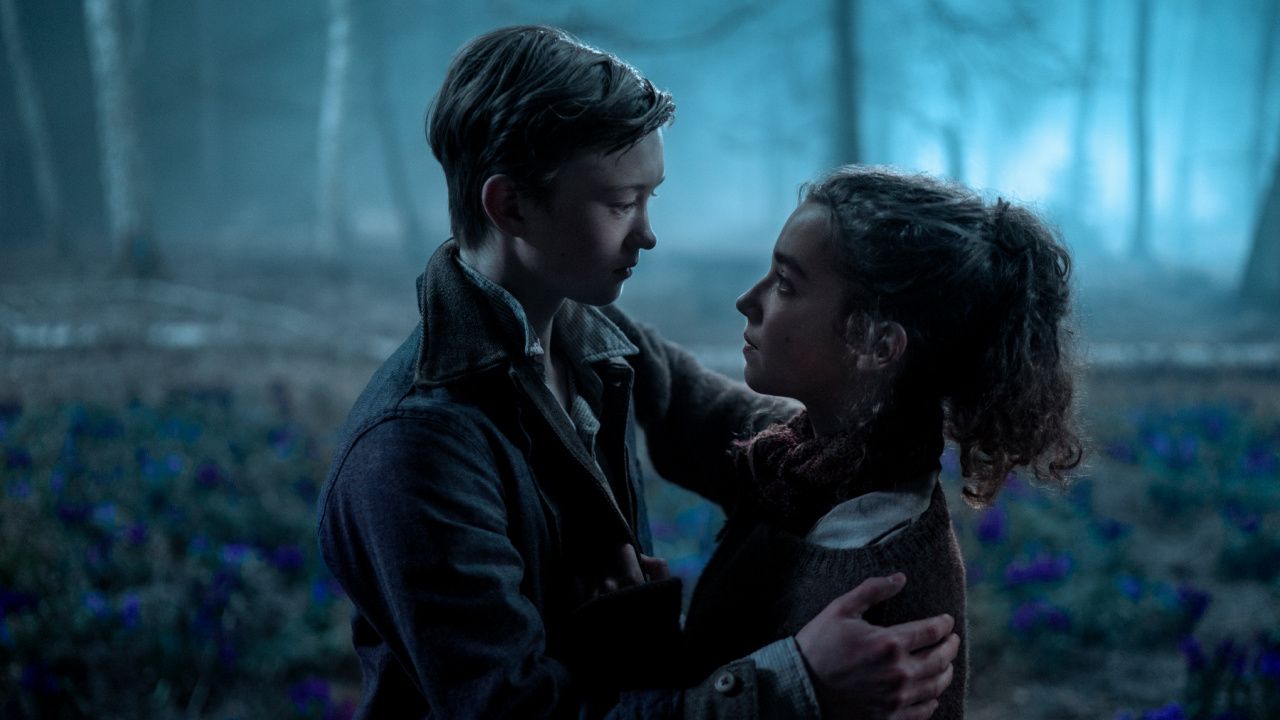
(L to R) Orlando Schwerdt as Julien and Ariella Glaser as Sara in 'White Bird'. Photo: Larry Horricks.
Moviefone recently had the pleasure of speaking with director Marc Forster and producer Renee Wolfe about their work on ‘White Bird’, adapting the source material, connecting it to ‘Wonder’, bringing Bryce Gheisar back, working with Dame Helen Mirren, casting Ariella Glaser and Orlando Schwerdt, their characters’ friendship, and the challenges of making a period piece.
You can read the full interview below or click on the video player above to watch the interview.
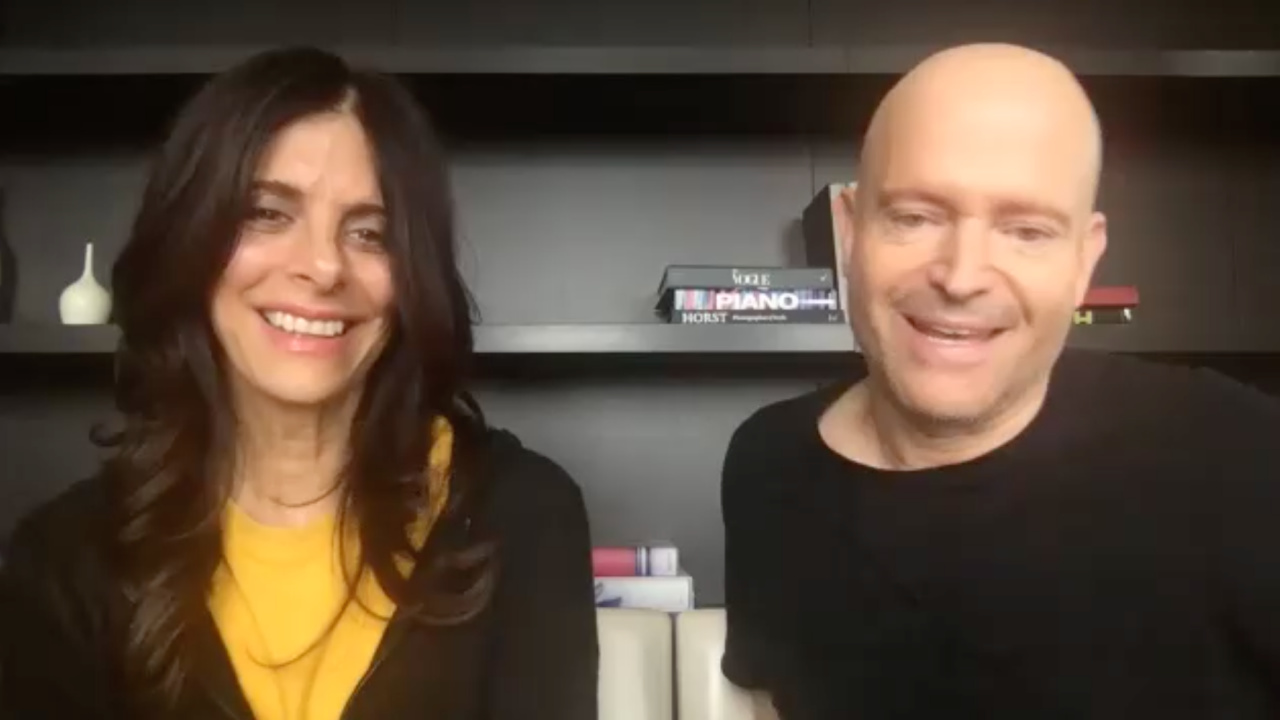
(L to R) Director Marc Forster and Producer Renee Wolfe Talk 'White Bird'.
Moviefone: To begin with, Marc, can you talk about your first reaction to the screenplay and the themes you wanted to explore as a director with this movie?
Marc Forster: I read the graphic novel and the screenplay six weeks into the lockdown in 2020. When I first read it, literally I got so emotional, and I started tearing up. It never happened to me (before) except when I read the screenplay to ‘Finding Neverland’. So, I felt “Why did that happen?” I said, "If you have such a reaction to something, I felt I have to make it." Ultimately, you could instantly connect with Sara, our protagonist, who's being played by Ariella Glaser, who in a larger part of the movie is hiding in a barn. During the lockdown was for the first time, we all could feel how it is not to be able to go outside. So, you could instantly relate to someone who was locked up. It felt much closer to us, and I felt it's a film about the Holocaust, but at the same time in the center of this is this beautiful teenage love story. R.J Palacio in her book ‘Wonder’, explored the themes of bullying and kindness, and she expanded on those themes here on ‘White Bird’, which I found very inspirational because I felt there's a lack of kindness today and I felt it was a story we need. It's also my hope that a lot of young people go and see the film. I see it as a family movie, a four-quadrant movie, but at the same time I hope that a lot of young people see the movie who haven't studied the Holocaust or haven't confronted that time of history, and maybe this is a window they can talk about it with their family.
MF: Just to follow up, was that the key for you with this film, focusing on the love story?
Marc Forster: Yeah, I felt that that ultimately the kindness and that connection of these two people who didn't really see one another, who really got brought together through historical circumstances and through the hatred around them. I felt like that grounded the film for me in an emotional part. Someone who is risking their lives and the entire family risking their lives to protect someone else is not just a true act of bravery, but it's a true act of love and I think it's so powerful that I felt like this is an important story I wanted to tell.
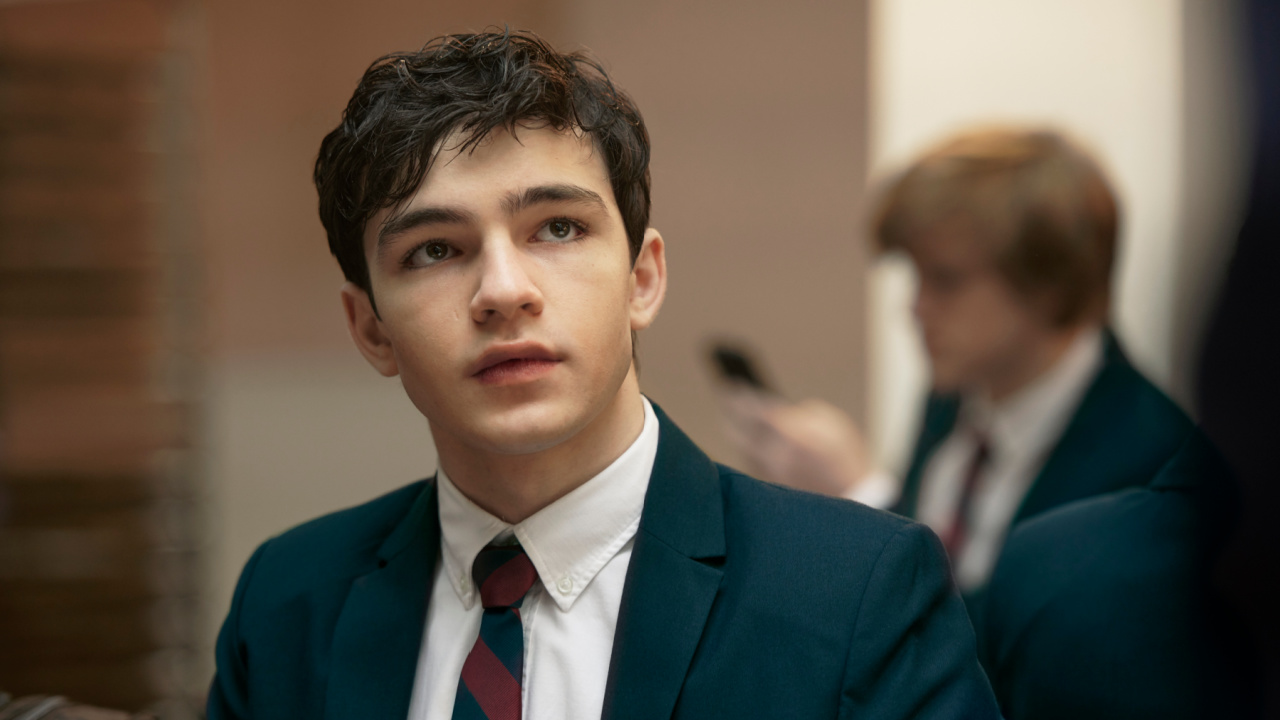
Bryce Gheisar as Julian in 'White Bird'. Photo: Julie Vrabelova.
MF: Renee, as a producer, can you talk about the source material and its connection to the larger ‘Wonder’ franchise?
Renee Wolfe: Well, as he said during the lockdown, we were both together and read this incredible story. I loved how, although it is a continuum of ‘Wonder’, it's not necessarily a sequel and the idea that we would now look at it and in a sense try to heal this character of the bully was intriguing to both of us. The only other way that we can transform things is if we have the bravery to look at them. The only way we can transform each other is if we hear each other's story. This is a witnessing of a transformation of somebody who could have gone on a wrong path. Putting this together just in the logistical part of it was very exciting because it wasn't necessarily a sequel, it was a different universe and it tapped into this character and offered redemption. So, we both thought it would be a good foundation to use the audience of ‘Wonder’ to get momentum for this yet have its own freestanding world. So that became part of what was exciting as the structure of a story world that could keep going onward and outward. Who knows, there may be another element of this that develops.
MF: Renee, can you talk about the choice to bring back actor Bryce Gheisar as Julian Albans from ‘Wonder’ and really connect the two movies?
Renee Wolfe: Marc and I had spoken at that point we thought for sure he's going to be a good actor, but there's a lot of years that have passed and it's COVID and you can't meet people in person. So, it was a little bit of like, well, we believe this is going to work, but we'll find out in person. Bryce was extraordinary. I mean, this young actor was so prepared and had evolved so beautifully and showed up wanting to tell a redemption story for this character. But logistically speaking, it was exciting to think that these kids who had seen ‘Wonder’ could track this actor as he's now evolved with them arguably the same age. So, it was part of the magic of what we thought would make this whole thing work. I think he carried that obviously not personally, but had a mission to redeem this character, which we both loved, and we thought that would translate into audiences that understood that they were one and the same actor.
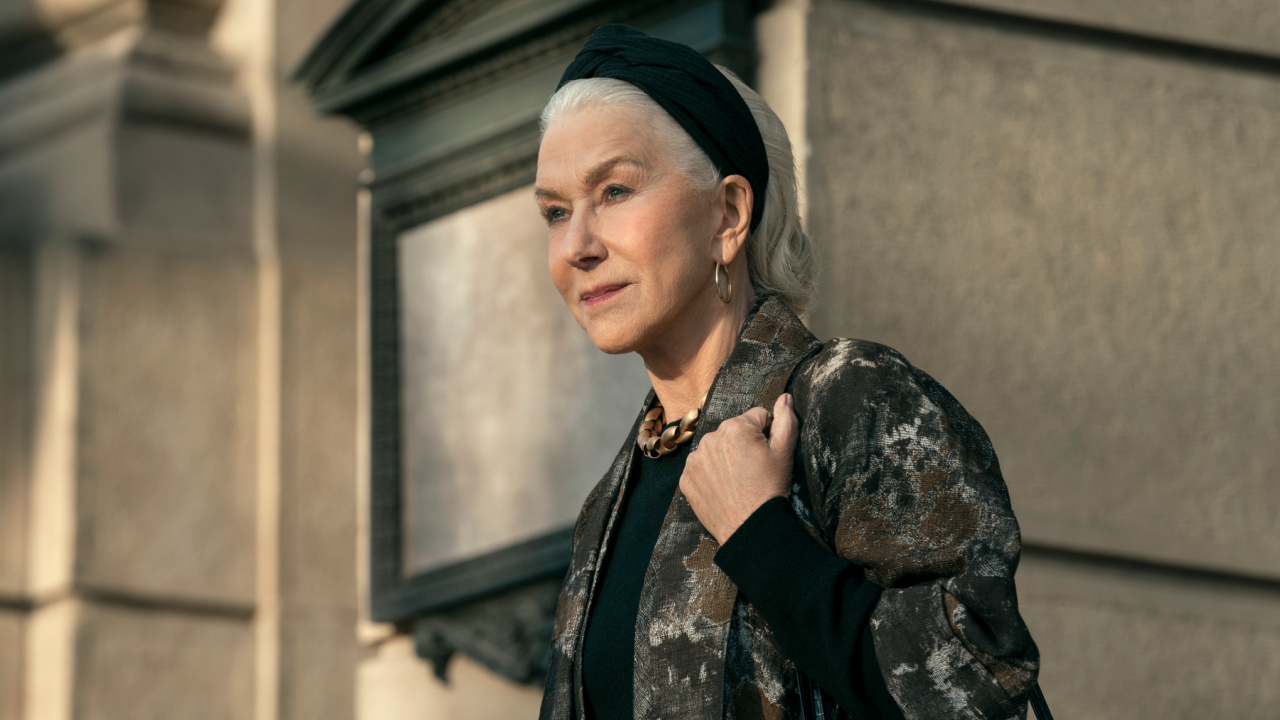
Helen Mirren as Grandmère in 'White Bird'. Photo Credit: Larry Horricks.
MF: Marc, can you talk about casting Dame Helen Mirren as the older Sara Blum and having that character narrate the film?
Marc Forster: When Helen first signed on, we spoke on the phone and on Zoom, and I said, "Look, we've already been shooting for a couple weeks." I said to her, "Look, I think it would be great if you could just watch the dailies, the work Ariella and I have been doing, how I've been directing her, her interpretation of Sara, her mannerisms and just get a feel for that." She watched all the dailies, and I called her back and said, "So how do you feel?" She said, "Oh, don't worry, I got you." I said, "Okay, if Dame Helen Mirren tells you that, I'm sure we're fine." When she came to Prague and showed up on set, and I've never met her before in person, what you expected of Helen Mirren is what you got and more. Just her emotional intelligence, her gentleness, her respectfulness, her kindness to everyone. There's certain security and thoughtfulness of her interpretation of a role that is so calming. There's also in all seriousness and drama, a twinkle of humor, which then inspires kindness, which is just extraordinary. Obviously, the speech at the end, she is like that, just watching her act that and directing her in that gave it different shades and the different moments and pauses were wonderful.
MF: Renee, can you talk about the importance of finding the right actors to play young Sara Blum and Julien Beaumier and casting Ariella Glaser and Orlando Schwerdt?
Renee Wolfe: It is extremely important. Again, during COVID, normally we would see people in person, and Marc and I spoke about this at length. There were people sending in their tapes from all over the world, and he's extraordinary at finding these young actors. It's really about the truthfulness in the performance and not giving a performance. These kids, so many of them were extraordinary, but when we landed on Ariella and Orlando, we knew that they had something that just really grounded them. Ariella knew this culture and knew the nuances that would really make the world of this timeframe and the authenticity of being Jewish and that experience, she knew this with every part of her existence. Orlando, on the other hand, has this fluidity to his performance and to his delivery. You see this character kind of blossom throughout the performance. In the beginning, he's hunched over and as love and as he's starting to be seen, he expands even in his chest. He radiates. The two of them together, that was the last question, I think that we both had. But Marc particularly, “Would this chemistry really, really work in person?” It did. But that was challenging during that time that we couldn't meet in person until the last minute.
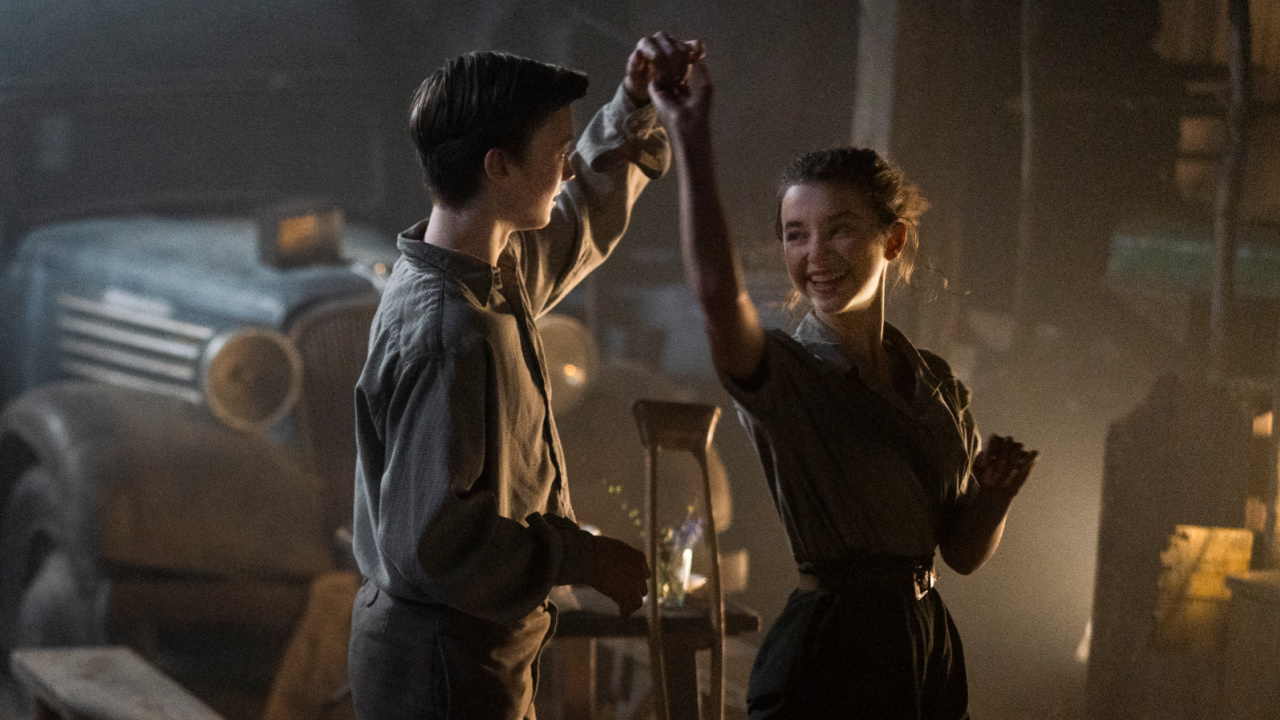
(L to R) Orlando Schwerdt as Julien and Ariella Glaser as Sara in 'White Bird'. Photo: Larry Horricks.
MF: Marc, what was it like working with Ariella and Orlando on set?
Marc Forster: It was extraordinary. I think Orlando, who plays Julien. First, he never brought a cell phone to set. So, he's a 15-year-old who doesn't come with a cell phone to set. He leaves it in the hotel room, completely focused, and there's a laser sharp focus to character himself. He doesn't mingle and doesn't joke around. I asked him, "So why do you leave your cell phone in the hotel?" He said, "Look, this is a chance, an opportunity of a lifetime. I really just want to focus on the character and my performance." Then Ariella, on the other hand, is very lively and comes from a very smart, educated family with an extraordinary historical knowledge of the time and really understands the responsibility also of the role. I think when I first met them, because as Renee mentioned, we cast them on Zoom, and I felt in a love story that chemistry is everything. So, I thought hopefully that chemistry would translate also in front of camera, not just on Zoom. When I met them and we started rehearsing, I had this moment of doubt, "What am I going to do if that chemistry is not going to land and I'm not believing that love story," because I never casted on Zoom before. So, when I met them the first time we started rehearsing and instantly there was just this beautiful chemistry that they had and we rehearsed a lot of the scenes.
MF: Renee, can you talk about the challenges of producing a period piece, particularly one set in this specific time in history?
Renee Wolfe: It has budgetary constraints. We didn't make this movie on a massive budget, but we had a crew that we had worked with historically. So, we had this second language together that was effortless. We shoot a mixture of location and stage. We were very lucky because the resources in the Czech Republic are impeccable. People put their very best into the equation. So, between locations and being able to build, once we all got there and working together in the past, we were able to do this on a relatively short amount of time and modest budget.
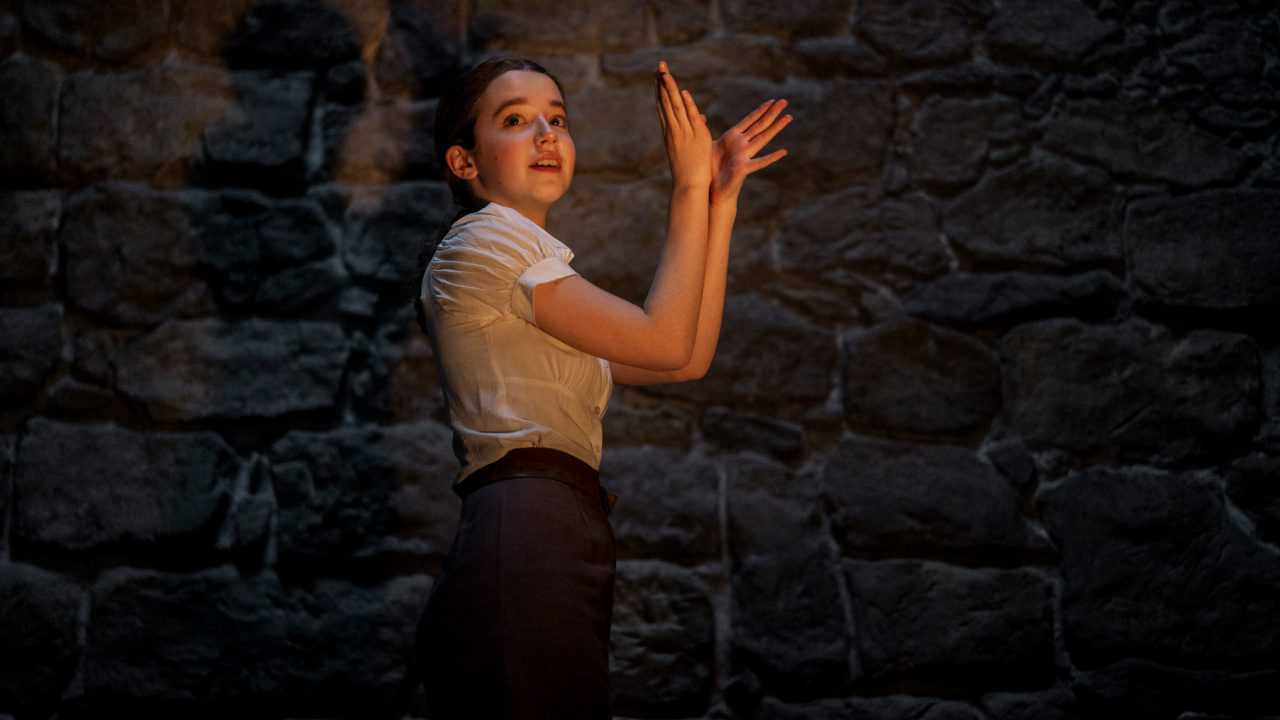
Ariella Glaser as Sara in 'White Bird'. Photo: Larry Horricks.
MF: Finally, Marc, what did you want to do visually with this movie in general and specifically in the cinema sequences?
Marc Forster: I think you have in the movie; a part of the storytelling is magic realism. Once you deal with magic realism and metaphors and a little bit of a fairy tale aspect, you make sure that the movie grounds itself and you're connecting with all the characters before you go into the metaphorical aspects and the magic realisms of the storytelling, so you don't lose the audience and you have freedom to maneuver them. Usually that's the transitions. Regarding the movie theater scenes, I was a big fan of ‘Cinema Paradiso’ because I love movies and ultimately that always has a nostalgia and romance in my heart being in a movie theater. So that was one aspect I was very fond of. Then the magic realism part of it's the key. How do we portray that when she says to him, "Let's go to Paris," and ultimately taking him on this journey and how we visualize that. There's a mixture between the movie we see in the movie theater and then the movie we see in their head, so to speak. Then ultimately, he brings the movie to her into the barn, because ultimately what they have in their heads and the movie they see themselves in is being informed by the film they saw in the movie theater.
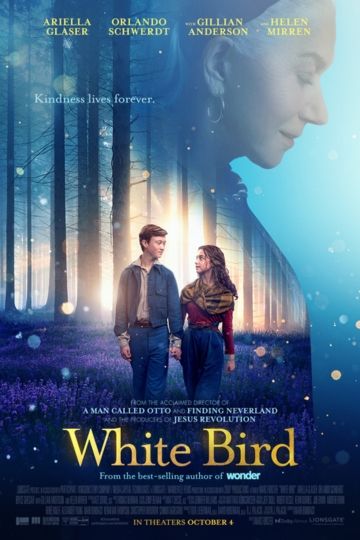
What is the plot of ‘White Bird’?
In ‘White Bird’, we follow Julian (Bryce Gheisar), who has struggled to belong ever since he was expelled from his former school for his treatment of Auggie Pullman (Jacob Tremblay). To transform his life, Julian’s grandmother (Helen Mirren) finally reveals to Julian her own story of courage, during her youth in Nazi-occupied France, a boy (Orlando Schwerdt) shelters her from mortal danger. They find first love in a stunning, magical world of their own creation, while the boy’s mother (Gillian Anderson) risks everything to keep her safe.
Who is in the cast of ‘White Bird’?
- Ariella Glaser as young Sara Blum
- Orlando Schwerdt as Julien Beaumier
- Bryce Gheisar as Julian Albans
- Gillian Anderson as Vivienne Beaumier
- Helen Mirren as Grandmère (older Sara Blum)
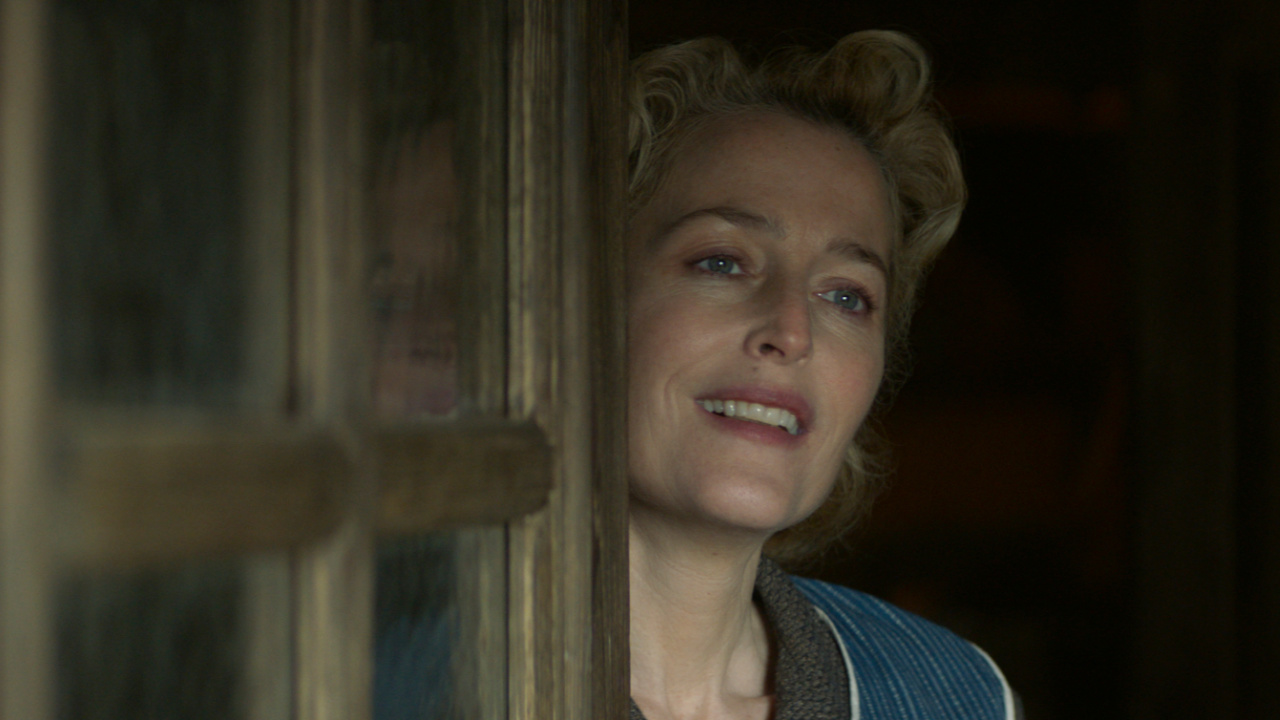
Gillian Anderson as Vivienne in 'White Bird'. Photo: Courtesy of Lionsgate.
Other Marc Forster Movies:
- 'Everything Put Together' (2001)
- 'Monster's Ball' (2001)
- 'Finding Neverland' (2004)
- 'Stay' (2005)
- 'Stranger Than Fiction' (2006)
- 'The Kite Runner' (2008)
- 'Quantum of Solace' (2008)
- 'Machine Gun Preacher' (2011)
- 'World War Z' (2013)
- 'All I See Is You' (2018)
- 'Christopher Robin' (2018)
- 'A Man Called Otto' (2023)
Buy Tickets: 'White Bird' Movie Showtimes
Buy Marc Forster Movies on Amazon

